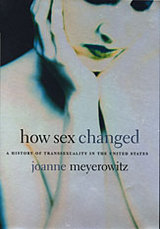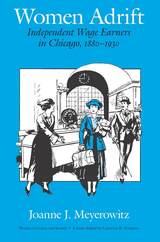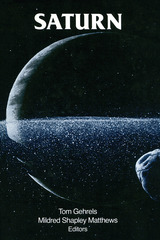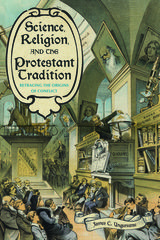

How Sex Changed is a fascinating social, cultural, and medical history of transsexuality in the United States. Joanne Meyerowitz tells a powerful human story about people who had a deep and unshakable desire to transform their bodily sex. In the last century when many challenged the social categories and hierarchies of race, class, and gender, transsexuals questioned biological sex itself, the category that seemed most fundamental and fixed of all.
From early twentieth-century sex experiments in Europe, to the saga of Christine Jorgensen, whose sex-change surgery made headlines in 1952, to today’s growing transgender movement, Meyerowitz gives us the first serious history of transsexuality. She focuses on the stories of transsexual men and women themselves, as well as a large supporting cast of doctors, scientists, journalists, lawyers, judges, feminists, and gay liberationists, as they debated the big questions of medical ethics, nature versus nurture, self and society, and the scope of human rights.
In this story of transsexuality, Meyerowitz shows how new definitions of sex circulated in popular culture, science, medicine, and the law, and she elucidates the tidal shifts in our social, moral, and medical beliefs over the twentieth century, away from sex as an evident biological certainty and toward an understanding of sex as something malleable and complex. How Sex Changed is an intimate history that illuminates the very changes that shape our understanding of sex, gender, and sexuality today.

"Brilliant. . . . Gracefully written, and mercifully free from the jargon that often plagues social history, this book is a welcome addition to literature in women's, urban, and black history."—Ann Schofield, American Historical Review
"Meyerowitz provides a splendid portrait of her subjects. . . . She deserves praise for her demographic spadework, sensitive analysis, and engaging style. This is a valuable and rewarding book."—Nancy Woloch, Journal of American History
"A state-of-the-art product of the new women's history. . . . Meyerowitz's work is an extremely useful contribution, a corrective to over-concentration on women in family, an opening to new ways of looking at single women."—Linda Gordon, Women's Review of Books
"Women Adrift not only brings together many of the most exciting insights of women's history in recent years, but Meyerowitz's particular angle on issues of work, family, sexuality, mass culture and relationships among women also encourages us to rethink these insights."—Ileen A. DeVault, Historian
READERS
Browse our collection.
PUBLISHERS
See BiblioVault's publisher services.
STUDENT SERVICES
Files for college accessibility offices.
UChicago Accessibility Resources
home | accessibility | search | about | contact us
BiblioVault ® 2001 - 2024
The University of Chicago Press









